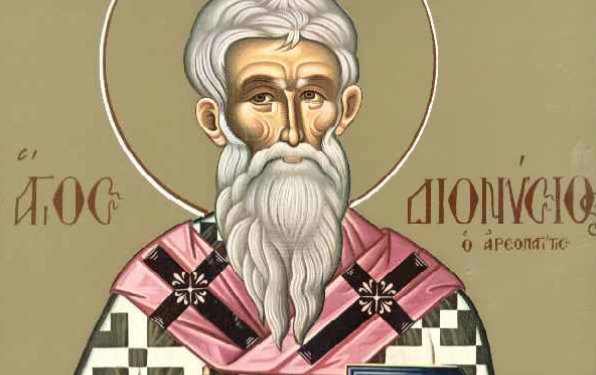The Orthodox Church commemorates today Hieromartyr Dionysius the Areopagite, who came from Athens. He has classical Greek education and was a judge at the Areopagus Court in Athens.
It should be noted that Arios Pagos took its name from the first court of “androphony” (murder crimes) founded in Athens between 1500 and 1300 BC, during the reign of Kekropas and Theseus, based on the rocky hill of the god Areos located northwest of the sacred rock of the Acropolis.
According to mythology, on this hill, the first “murder trial” took place, during which the twelve gods of Olympus judged Mars. This supreme court of antiquity was composed of lifelong members, the Areopagites, who had all the powers. It was called “The Parliament of the Supreme Court”.
Until the early Christian years, the prestige of the Areopagus Court remained unchanged. The Apostle Paul preached on the Areopagus Hill in Athens (literally means “the rock of Ares”).
When the Apostle Paul visited Athens, he decided to preach and speak of the Unknown God. Dionysios and Hierotheos, who later became bishops of Athens, were the first Athenians to believe in Christ.
The preaching of the Apostle Paul touched the soul of Dionysius who was well-educated, and, therefore, he decided to be baptized. He was then ordained Bishop of Athens by Saint Paul succeeding Bishop Hierotheos, whose memory is celebrated tomorrow, on the 4th of October.
Hierarch Dionysius was distinguished for his deep spiritual culture and virtuous life, drawing on secular knowledge and the experience he gained as a judge. He was deemed worthy by the Lord to receive the gift of performing miracles under the power of the Holy Spirit.
Saint Dionysius suffered a Christian martyr’s end. He is the patron saint of Athens and is venerated as the protector of the judges and the judiciary.
We also commemorate Saint John of Hosevit, Bishop of Caesarea. He was a monk in a cave when he was called to become the bishop of Caesarea, but he did not want to leave his monastic life. So he returned to his hermitage, where he continued with patience and love the prayer and the practice of virtues.
Source: Chruch of Cyprus















